About the 0-19 team
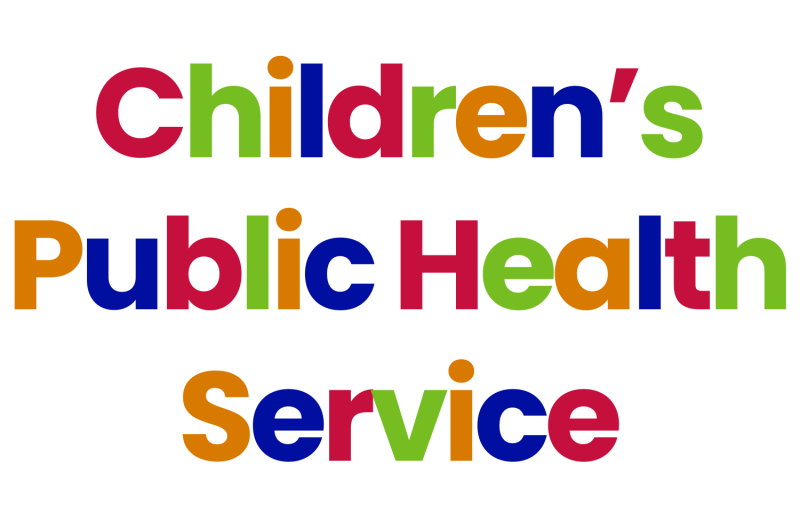
Beginning in the antenatal period and continuing until the age of 19, the Children's Public Health Service includes health visitors, public health school nurses, staff nurses/midwives, and child development practitioners.
The team is available via telephone Monday to Friday, 8.30am to 5pm. Contact details are below:
- Shiremoor, Killingworth, Dudley, Longbenton or surrounding areas: 0191 643 8297
- North Shields, Preston, Chirton or surrounding areas: 0191 643 8241
- Wallsend, Howdon, Battle Hill or surrounding areas: 0191 643 8861
- Whitley Bay, Tynemouth, or surrounding areas: 0191 643 8808
The team also has a Facebook page for parents and carers of children and young people in North Tyneside which can be found here.
The results of our CQC inspection (which took place in November 2022) can be found here.
Health visiting
All families have universal contact from the Health Visiting team, including:
- Antenatal contact
- New baby visit/primary visit
- Assessment at six/eight weeks
- One-year-old assessment
- 24 -28 month assessment
Teams can offer help, advice and support on:
- Emotional health and wellbeing
- Infant feeding
- Vaccinations
- Healthy eating
- Stop-smoking services
- Readiness for school
Any identified additional needs or support will be assessed and supported by a named health visitor.
School health
ChatHealth
ChatHealth is a texting service is available for young people aged 11-19 looking for confidential support and advice. The number to text is: 07507 332 532
The school nursing team can be contacted via telephone Monday to Friday 8.30am to 5pm on 0191 643 8251.
Public Health School Nurses provide support in and out of school, with issues such as:
- Emotional health and wellbeing
- Keeping healthy and weight management
- Enuresis (bed wetting)
- Sexual health
- Smoking, drugs and alcohol
National Childhood Measurement Programme
The National Childhood Measurement Programme is delivered in reception and year 6, further information can be found below.
Vision screening
Vision screening is offered to reception age children, further details on the test and results is available below.
Related documents
ParentLine
ParentLine is a confidential text service for parents and carers living in North Tyneside.
Caring for a child can come with its worries and concerns about their health and wellbeing, leaving parents feeling overwhelmed and looking for answers. ParentLine is an anonymous texting service you can use to ask questions to qualified nurses. You may have queries about feeding and nutrition or need advice about development and behaviour issues.
The texting service offers an informal and quick way to communicate with health professionals about any issues that may come your way.
Friendly teams will answer your queries or point you in the right direction to find additional help.
Talking to a professional can help you to feel less anxious and worried and identify the best way forward. Our teams will do their best to provide you with up to date information and support.
The service is available Monday to Friday from 8.30am to 4.30pm (excluding Bank Holidays). Any enquiries sent outside of these hours will be answered as soon as possible.
- For parents and carers of children aged 0-5 text 07480 635 592
- For parents and carers of children and young people aged 5-19 text 07480 635 908
Infant feeding
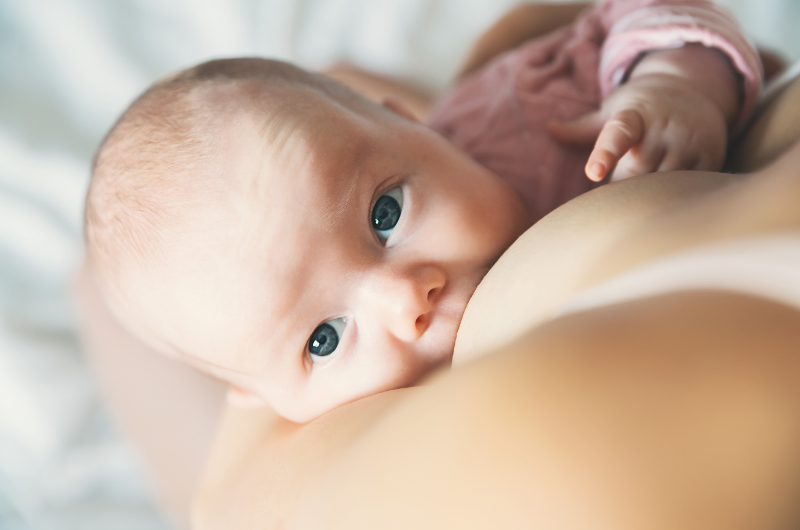
As a UNICEF Gold Baby Friendly Accredited service, we are committed to providing parents with the best possible care to build close and loving relationships with their baby and to feed their baby in ways which will support optimum health and development.
We have plenty of information about your options and there is always help and support available from the health visiting team. If you would like further information on infant feeding speak to your midwife or health visitor.
Breastfeeding
Why breastfeeding?
Providing your baby with your milk reduces the risk of many illnesses and diseases. Breastfeeding helps reduce your risk of getting breast and ovarian cancers and heart disease. Breastfeeding has lots of health benefits for your baby, your milk changes as your baby grows and supports their development. Your milk changes if your baby is unwell to help them fight infections, it can also reduce the risk of them developing chest infections, asthma, eczema, gastroenteritis and diabetes later in life. Watch this video on human milk and how amazing it is.
This video gives you lots of information on breastfeeding; from building a relationship with your unborn, the importance of colostrum and colostrum harvesting, positioning and attachment, breastfeeding expectations (such as cluster feeding), responsive feeding, recognising problems and normal baby behaviour.
Information on common breastfeeding challenges can be found here.
Breastfeeding basics
Breastfeeding is a skill that is learnt by both you and your baby. Don’t be worried if it takes a little time to get the hang of. Here’s the headlines:
- Skin to skin contact
Having skin to skin contact immediately after birth helps with bonding and getting feeding off to a good start, it helps to calm and relax you and baby, gives baby an interest in feeding and helps to protect them against infections.
Skin to skin is also great for older babies as it promotes the hormones needed for relaxation, bonding and feeding, if your baby is unsettled or you are having breastfeeding problems try having some skin to skin.
- First milk
The first milk you produce when your baby is born is called colostrum, it is thick and yellow in colour. It is very concentrated, so you only produce tiny amounts, colostrum is full of essential nutrients for your baby and provides lots of protection against infection. Watch this video for more information about the 'first feed'.
Some people collect their colostrum while they are pregnant, particularly if they have some risk factors. Speak to your midwife to check it is safe for you to collect colostrum during pregnancy. Watch this video for information on hand expressing your milk.
- Knowing your baby is feeding well
Positioning and attaching your baby to breastfeed successfully is important. Baby must be attached well to be able to feed effectively and for you to be comfortable.
Information on positioning and attaching your baby at the breast can be found here.
More information on signs your baby is feeding well can be found here.
- Responsive feeding
Breastfeeding is not just about giving your baby food, breastfeeding also provides your baby with comfort and helps them feel safe and secure. Being responsive to your baby’s cues to feed is essential, it will help your milk production and will help with baby’s growth and brain development. You may offer baby the breast if they are hungry, tired, unsettled, teething or if you feel your breasts are full, for convenience or just because you want to, this is responsive feeding. There is more information on responsive feeding here.
Expressing and storing milk
You may wish to express your milk to feed your baby for a variety of reasons. Information on expressing and storing breastmilk can be found here.
Information on breastfeeding and expressing for premature or sick babies can be found here.
Returning to work or study
Legislation offers protection to breastfeeding mothers who return to work or study and some employers have developed policies to support staff.
Your employer of place of education should be able to give you more details, but you can also get more information here.
Responsive formula feeding
Keeping your baby close, enjoying skin to skin contact and responsive feeding will help you and your baby develop a close and loving relationship. It is important to limit the number of people who feed your baby in the early days to help them develop a close and loving bond.
If you decide to give your baby formula milk your midwife and health visitor will provide you with information on what milk to use, how to make up feeds safely, how to feed your baby and how to safely sterilise equipment. Information on formula feeding can be found here.
Introducing solid foods
Introducing solid foods, should start when your baby is six months old. Information on signs of readiness, getting started, recipes and meals and safety can be found here.
First Steps Nutrition also provide advice and information on introducing solid foods for babies between six months up to one year which can be found here.
Help and support
Help and support is available from your midwife or members of the health visiting team, they can also refer you to additional support from the infant feeding coordinator. It is really important to ask for help if you need it.
Related documents
Introducing solid food sessions
Health Visitors in North Tyneside are available to support families when it comes to introducing baby to solid foods.
Each session is the same so you only need to attend one. Sessions are free to attend and don't require a booking.
Sessions are taking place on:
- Thursday 14 August at John Willie Sams Centre, 10-11am
- Monday 18 August at Waves, 1.30-2.30pm
- Wednesday 27 August at Riverside Family Hub, 1-2pm
- Tuesday 2 September at Wallsend Customer First Centre, 11.30am-12.30pm
- Wednesday 10 September at Oxford Centre, 10-11am
- Wednesday 24 September at Riverside Family Hub, 1-2pm
Best Start Peer Support groups
Would you like the chance to discuss your parenting challenges in a supportive and friendly environment with other parents?
There are free sessions each week for parents of babies and young children:
- Monday, 10am-12pm: North Shields Community Hub and Library, Northumberland Square, North Shields, NE30 1QU
- Tuesday, 10am-12pm: Wallsend Community Hub and Library, The Forum, Wallsend, NE28 8JR
- Tuesday, 12.30-2.30pm: Oxford Centre, Longbenton, NE12 8LT
- Wednesday,12.30-2.30pm: Whitley Bay Big Local, 158 Whitley Road, NE26 2LY
The sessions are focused on breastfeeding support, safe sleep, coping with crying, mental health, infant feeding, and responsive parenting. Please note the groups only meet during term time.
If you would like to volunteer to be a Best Start Peer Supporter, find more information on the VODA website.
Safer sleep and coping with infant crying
Safer sleep guidance gives simple steps for how you can sleep your baby to reduce the risk of sudden infant death syndrome (SIDS) which is sometimes known as cot death. You should follow safer sleep advice for all sleep whether it's day or night. Find out more about safer sleep for babies here.
ICON is all about helping people who care for babies to cope with crying. Baby’s cry and it is normal, ICON has lots of information on why babies cry, comfort methods to help you cope with crying and where to find more support. Click here for more information from ICON.
Baby clinics
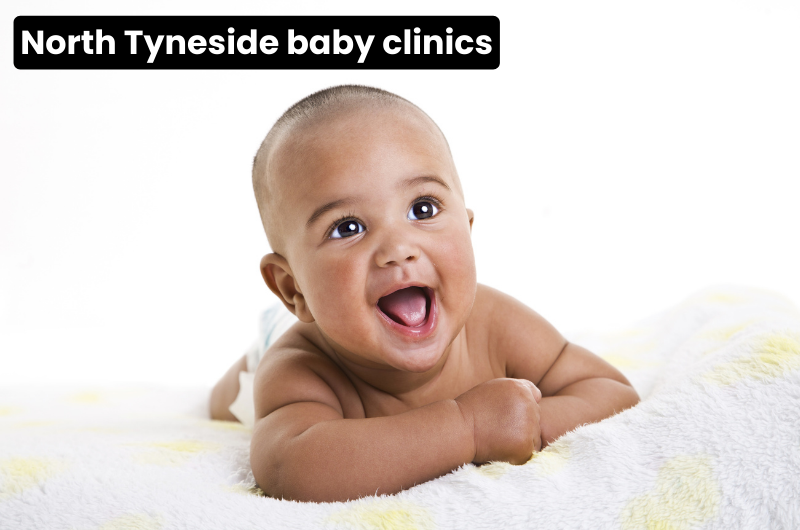
Baby clinics give parents an opportunity to review and monitor the growth and development of their baby and ask questions about anything baby related!
Those eligible for the NHS Healthy Start scheme can also collect their vitamins at baby clinics, just bring your Health Start card.
Details of where and when clinics take place are available below.
Related documents
Healthy Start
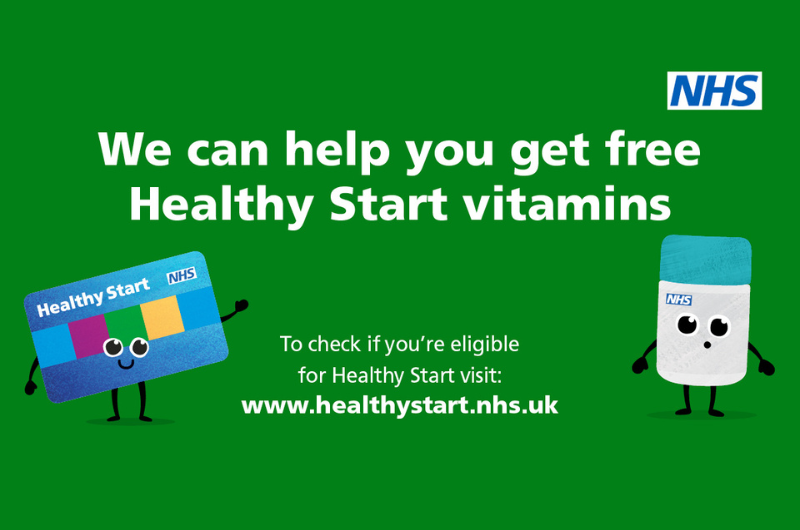
If you’re more than 10 weeks pregnant or have a child under four, you may be entitled to get help to buy healthy food and milk. If you’re eligible, you’ll be sent a Healthy Start card with money on it that you can use in some UK shops. You can find out more about the scheme and how to apply here.
Pregnant or breastfeeding women and young children may not get enough vitamins - even if they are eating well. You can use your Healthy Start card to get these important vitamins for free. These come as NHS Healthy Start tablets and drops for children. You can get Healthy Start vitamins from your Health Visitor or at one of our baby clinics. More information about Healthy Start vitamins is available here.
Online parenting courses
Do you want to learn about your child's development and how to create a positive relationship?
There are courses available to everyone who cares for children aged up to 18 years old. We said everyone because the courses can be great for aunties, uncles and grandparents as well as parents and carers.
Developed by registered professionals, the 0-19 Children’s Public Health team has opted in to get residents in North Tyneside free access to the wide range of courses available.
You can learn more about pregnancy, birth, breastfeeding, parenting styles, emotional development, understand how you can through influence play and much more.
Increase your confidence as a parent or carer, so that everyday life with your child(ren) is a little bit easier.
Find the full range of courses and get started by using the access code ‘QUADRANT’ on the Our Place website.
DadPad
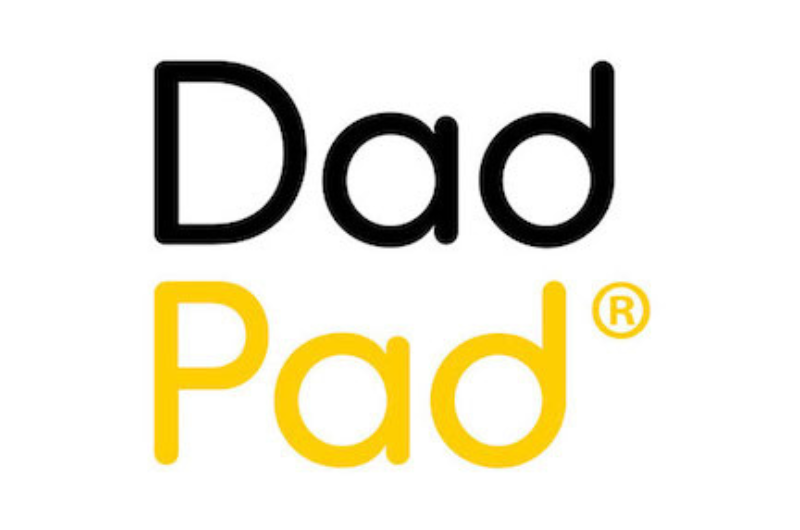
Fathers in North Tyneside can access the DadPad app which provides new dads (and dads-to-be!) with practical skills and information to manage and become confident in the transition to fatherhood.
The app gives access to knowledge and support on a range of key subjects, as well as providing signposting to both local and national services, groups, and organisations.
Examples of the subjects covered include:
- basic baby care skills (such as holding, cleaning, nappy changing and sleep)
- coping with a crying baby
- supporting mam with breastfeeding
- home safety and first aid
- information on child development milestones (from birth to 18 months)
- forming a secure bond with baby
- advice on how to navigate the challenging days of new parenthood
You can download DadPad here, or by searching ‘DadPad’ in your app store. You can access content for free by completing the short registration form.
Chatterbox Groups
Please note this project is a pilot.
Chatterbox Groups are an early intervention to support children with their speech, language and communication development.
The 0-19 team will identify eligible children and invite them to the group which takes place once a week for three consecutive weeks at various venues across North Tyneside.
The groups are fun and interactive sessions where parents/carers are supported to use strategies to support their child’s speech, language and communication development.
Activities include group story time with a parachute and individual play stations. Each child receives a book to keep as part of the group.
Any parents/carers interested in these groups should discuss it with their Health Visitor at their child’s two year developmental review.
Healthier Families
Active Bump, Birth, Baby
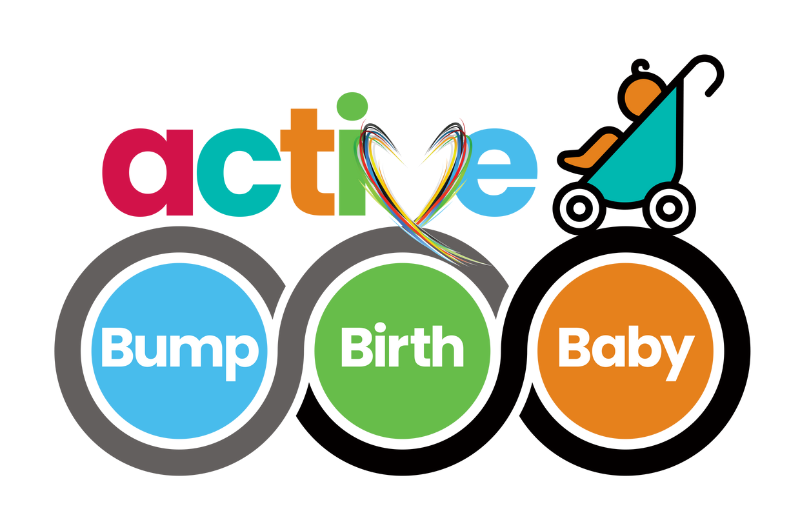
Antenatal and postnatal support for a healthier lifestyle
Looking to enjoy the benefits of movement during pregnancy? Has the arrival of your baby inspired a lifestyle change? Do you want to ease yourself back into an exercise routine postpartum?
The Active North Tyneside team delivers a range of programmes, classes and sessions designed for expectant and new mams.
You can find out more about each programme, including the dates, times and locations of sessions, here.
Parents emotional and mental wellbeing
Every person’s experience as a parent is different.
With the highs that come from becoming and being a parent, it’s also important to recognise the potential overwhelming feelings that can be experienced.
Parents can suffer from a low mood, anxiety and depression and feel irritable, detached, helpless or worried.
If you need help or support, you can contact School Nurses, Health Visitors or your GP.
Domestic abuse
Domestic abuse comes in many forms, including but not limited to, controlling behaviour, threatening behaviour, and physical violence. Adults and children have a right to live free from fear.
The 0-19 Children’s Public Health Service can provide confidential support and advice on the wide range of support services available for both adults and children.
You can find more information and the different types of support available from various organisations here.
Local offer
For information on the Local Offer, visit our Local Offer: Special Educational Needs and Disability section.
